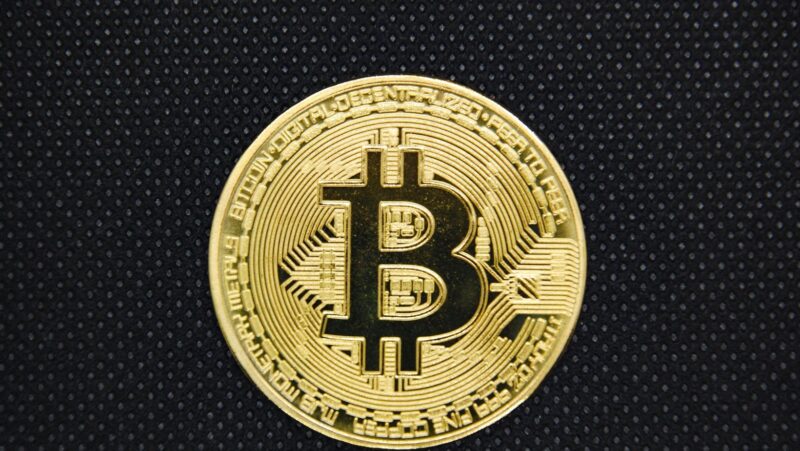
In the fast-evolving CBD industry, where accessibility, transparency, and financial efficiency are increasingly important, cryptocurrency is emerging as a game-changer. The combination of CBD and cryptocurrency offers unique benefits that address many of the challenges traditional financial systems pose to CBD businesses. From providing secure and private transactions to reducing costs and enabling global reach, cryptocurrency is helping reshape how CBD businesses operate in a digital-first world.
In this blog, we’ll explore the ways cryptocurrency is impacting the CBD industry, why it’s becoming a preferred method for some businesses, and the potential challenges on the horizon.
Why Traditional Banking Faces Challenges with CBD
The CBD industry often faces roadblocks with traditional banking systems due to regulatory complexities and federal laws. Since CBD is derived from cannabis, many banks and payment processors perceive it as a high-risk sector, creating barriers for CBD companies when they try to establish payment systems.
- High Fees and Account Restrictions: Full Spectrum CBD businesses often incur higher fees or face restrictions due to the nature of their products. Many financial institutions, wary of cannabis-related transactions, either increase rates or decline partnerships entirely.
- Limited Access to Payment Processing: CBD companies frequently find it challenging to secure reliable payment processing, leading to transaction delays and higher operational costs.
Cryptocurrency, as a decentralized payment method, offers a promising alternative, bypassing these traditional barriers and allowing CBD companies more flexibility.
Cryptocurrency: A Solution for Secure and Private Transactions
One of the main appeals of cryptocurrency for CBD businesses is the enhanced security and privacy it offers. Unlike traditional payment methods that often require personal and banking details, cryptocurrency provides a layer of anonymity that benefits both businesses and consumers, especially in a highly regulated industry like CBD.
- Data Privacy: Cryptocurrency transactions are often more private, as they don’t require personal details, which is appealing to consumers concerned about discretion in purchasing CBD.
- Reduced Chargeback Risks: Cryptocurrency payments are typically irreversible, which means that CBD businesses face fewer risks from fraudulent chargebacks, a common issue with credit card transactions.
This security and anonymity build trust and appeal for consumers who may be wary of sharing sensitive information online or want to avoid payment tracking.
Lower Transaction Fees and Faster Processing
For CBD businesses, every transaction fee affects the bottom line. With traditional banks and payment processors, fees can be substantial due to high-risk classification. Cryptocurrency, however, is known for offering lower fees and faster transaction times, which is a major benefit for CBD businesses looking to optimize operational costs.
- Cost-Effectiveness: With fewer intermediaries involved, cryptocurrency transaction fees are often lower, which benefits both the business and the consumer, potentially allowing for better pricing.
- Instantaneous Payments: Payments in cryptocurrency are processed quickly, often in a matter of seconds, regardless of location. For international CBD businesses, this immediate transaction capability eliminates the typical delay associated with cross-border payments.
For businesses operating with tight margins, cryptocurrency’s cost-effectiveness provides significant savings, improving profitability and allowing them to offer competitive prices.
Simplifying Cross-Border Transactions
For CBD businesses that cater to international markets, cross-border transactions pose unique challenges. Currency conversion, international bank fees, and varying CBD regulations complicate global transactions.

Cryptocurrency, being a borderless payment option, provides a streamlined solution.
- Universal Payment Option: With cryptocurrency, CBD businesses can accept payment from customers worldwide without needing currency conversions, making it an efficient method for global sales.
- Bypassing Regulatory Hurdles: Cryptocurrency can sometimes bypass the restrictions placed on CBD in certain markets, enabling businesses to operate more freely internationally.
This global accessibility helps CBD companies expand their reach and operate with fewer limitations, opening the door to new markets and consumer bases.
Blockchain for Transparency and Consumer Trust
Blockchain technology, which powers cryptocurrency, is invaluable in enhancing transparency—a key factor for consumers when it comes to CBD products. Blockchain allows businesses to create a record of the product’s journey from seed to sale, providing consumers with complete transparency about the origins and contents of their CBD products.
- Traceability: Blockchain can store information about the CBD product’s cultivation, extraction, and testing. This tamper-proof record can be accessed by consumers through QR codes, providing assurance of quality and compliance.
- Counterfeit Prevention: Blockchain technology also helps prevent counterfeit CBD products from reaching consumers, building trust in the brand and increasing consumer loyalty.
In an industry where quality and source transparency are paramount, blockchain integration alongside cryptocurrency can elevate consumer confidence.
The Role of Digital Wallets and Crypto Payment Solutions
Cryptocurrency payments in the CBD industry are facilitated through digital wallets and crypto payment solutions that simplify transactions for both consumers and businesses.

These solutions are becoming increasingly user-friendly, and several platforms now offer integrated wallets or plugins designed for CBD businesses.
- Digital Wallets for Easy Access: With digital wallets, consumers can securely store and manage their cryptocurrency, making it easy to pay for CBD products instantly.
- Crypto Payment Gateways: Payment gateway services such as BitPay and Coinbase Commerce allow CBD companies to accept cryptocurrencies while converting funds to fiat if desired. This setup provides the flexibility to engage with both traditional and crypto consumers without holding the funds in cryptocurrency.
By adopting these systems, CBD companies can cater to tech-savvy customers who prefer crypto payments while also simplifying the payment process on the business end.
Potential Challenges of Cryptocurrency in the CBD Industry
While cryptocurrency offers many advantages, it’s not without its challenges. The volatility of cryptocurrency values, regulatory scrutiny, and consumer knowledge gaps are all factors CBD businesses need to consider.
- Volatility: Cryptocurrencies can experience rapid fluctuations in value, which may create revenue uncertainties for CBD businesses. To mitigate this, some companies immediately convert crypto payments to fiat currency.
- Regulatory Ambiguity: The regulatory environment for both CBD and cryptocurrency is evolving. CBD companies using cryptocurrency must stay informed about regulations in different regions to avoid legal issues.
- Consumer Education: Many consumers are unfamiliar with cryptocurrency, so CBD businesses may need to educate their customer base to facilitate crypto adoption and trust in the payment method.
Despite these challenges, the adoption of cryptocurrency in the CBD industry is growing, and as the technology and regulations evolve, these issues may become less of a barrier.
Conclusion
Cryptocurrency is opening new doors for CBD businesses, providing a range of benefits that traditional payment systems can’t easily offer. From enhancing transaction privacy and cutting costs to enabling seamless global sales and increasing transparency through blockchain, cryptocurrency is helping shape a more accessible, efficient, and consumer-friendly CBD landscape.
As the CBD industry continues to evolve alongside advancements in cryptocurrency and blockchain, we’re likely to see even more integration between these two dynamic sectors. For CBD businesses ready to innovate and adapt, cryptocurrency offers a promising path forward, with the potential to unlock new markets and create a secure, modernized transaction ecosystem.










